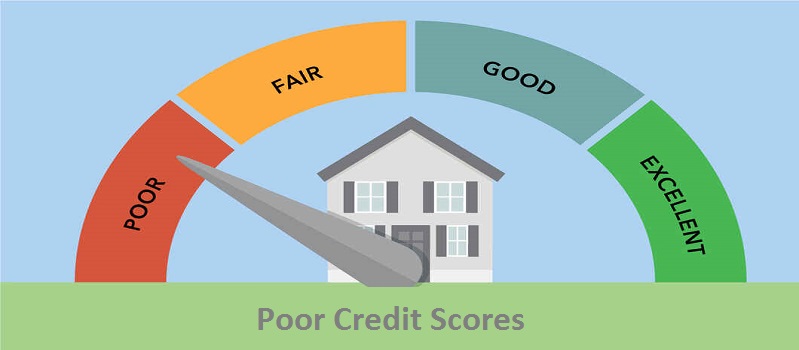The unprecedented levels of rising interest rates have whittled down your buying power. Although there has been the slightest drop in the interest rates, it does not mean that prices will ever go back to what they were in the previous year. In common terms, inflation is a procedure of increasing prices that continue to reduce your buying power.
It means you will be able to buy less today than yesterday in exchange for the same amount of money. When the money circulation increases, the central bank increases the base rate that banks and direct lenders pass on to you. An increased base rate means increased interest rates. Inflation can affect your loans,, including mortgages, savings, investments, insurance, and other financial products.
What will be the effect of soaring interest rates on loans and savings?
With rising inflation, the prices of everything start going up, and as a result, the central bank will increase interest rates. It means loans will be expensive. It is always a good idea to have enough savings at this time so you do not need to rush to direct lenders to borrow money to stay afloat.
If you already owe some money, you should be able to pay down the monthly instalment without compromising your essential expenses. The impact of inflation on loans depends on the interest rates you have chosen – fixed or variable. No revision will be seen if you are on a fixed-interest rate deal. However, you will see a rise in your variable interest-rate deal. The size of monthly instalments will grow.
Likewise, your savings will grow slightly because banks will pay you a slightly higher interest rate, but unfortunately, that increase will not be significant. Under no circumstances will the savings interest rates proportionately rise in the interest rates charged to loans. However, if you keep your savings in cash, they will not undergo any changes, but that money will lose buying power to some extent.
How to avoid paying high interest on loans and prevent savings from the inflation
Here are ways to deal with the impact of rising inflation on your loans and savings:
1. Compare interest rates
Whether you are applying for 100% guaranteed acceptance loans from a direct lender or a mortgage, do not forget to compare interest rates. They may vary because of added fees. Likewise, you should keep an eye on the interest rates your bank offers on savings accounts. However, sometimes you will see no change in the interest offered on your savings.
2. Carefully evaluate both types of interest rate deals
A good thing about a fixed-interest rate loan is that the size of the monthly instalment will remain the same, so it is easy to have sufficient room in your budget for regular payments; however, interest rates will be higher even though the base rate is low.
Some loans, like mortgages, will allow you to refinance when interest rates drop but examine the cost after taking into account the settlement fees of your current mortgage.
While the option for variable interest-rate loans, you should know what will be the size of your monthly instalment. Get clarity from your bank on how this will be affected when the interest rates hike. Assess if your budget will allow paying that much money.
3. Pay heed to the risk of indebtedness
Before you take out a loan, make sure that you will be able to pay interest on the debt without any hassle. Consider early repayment fees, late payment fees, and monthly fees to know the estimated cost of your debt.
Be careful about maxing out your credit card bills, and if you are already struggling with debt payments, you should talk to your lender. Do borrow money from reputed direct lenders like QuickLoansLender to get more affordable deals.
How does the inflation impact your investments?
A general rule of thumb says that rising interest rates will reduce the return and badly affect your buying power. There will be different impacts of inflation on different types of financial investments.
It is not straightforward to predict the impact of inflation on the stock market. The soaring prices of goods and services will whittle down the companies’ profits. As a result, the prices of shares will go down, which may or may not affect the stock market.
As far as it is about fixed coupon bonds, you will get the same amount of money as agreed in the contract on maturity, but the value of money will have gone down due to inflation.
How to prevent your investments from the worsening effects of inflation
Focus on the following tips:
1. Analyse potential risks and benefits
You will have to change your investment strategy as the prices go up and down. Analyse the risks and benefits linked to investing assets. Check the costs of investing assets and then look for cheaper alternatives.
2. Diversify your assets
A diversified portfolio can avert the risk as much as possible. When inflation is high, the market would move slowly. If you have put all your money in one kind of investment, you might lose the whole of your money due to an unexpected fall.
3. Choose safer investments
Of course, the returns on investments will be lower, yet there is a chance to avoid bearing the loss due to the volatile market. You should choose safer investment alternatives like fixed deposits. Since your money will remain unused until maturity, your banks will likely offer you better interest rates.
In fact, it has been noticed that banks offer higher rates compared to the previous year’s rates despite a further hike in prices.
General tips to have complete control over your finances even in high inflation
- You must know how much money you are sending and where. Use your income efficiently.
- Prioritise your spending, not to mention an emergency cushion. Revise your budget every month if possible. Set saving goals and make a strategy to achieve them.
- Pay heed to associated fees while taking out a loan.
- Seek an advice from a financial pro before investing money.

Emma Anderson is a financial advisor at Quickloanslender who always believes in researching hard to know her clients’ financial problems. She takes the time to understand their financial wants and needs to write the blogs on them as the solutions. In her long 14 years of experience, she has written plenty of blogs on the financial and business sectors of the UK.
Emma Anderson has been recognised for her work in financial planning and her blogs are regularly published in the website of Quickloanslender. As far as her educational qualification is concerned, she has done Masters in Accounting and Finance, and done PG Diploma in Creative Writing.






